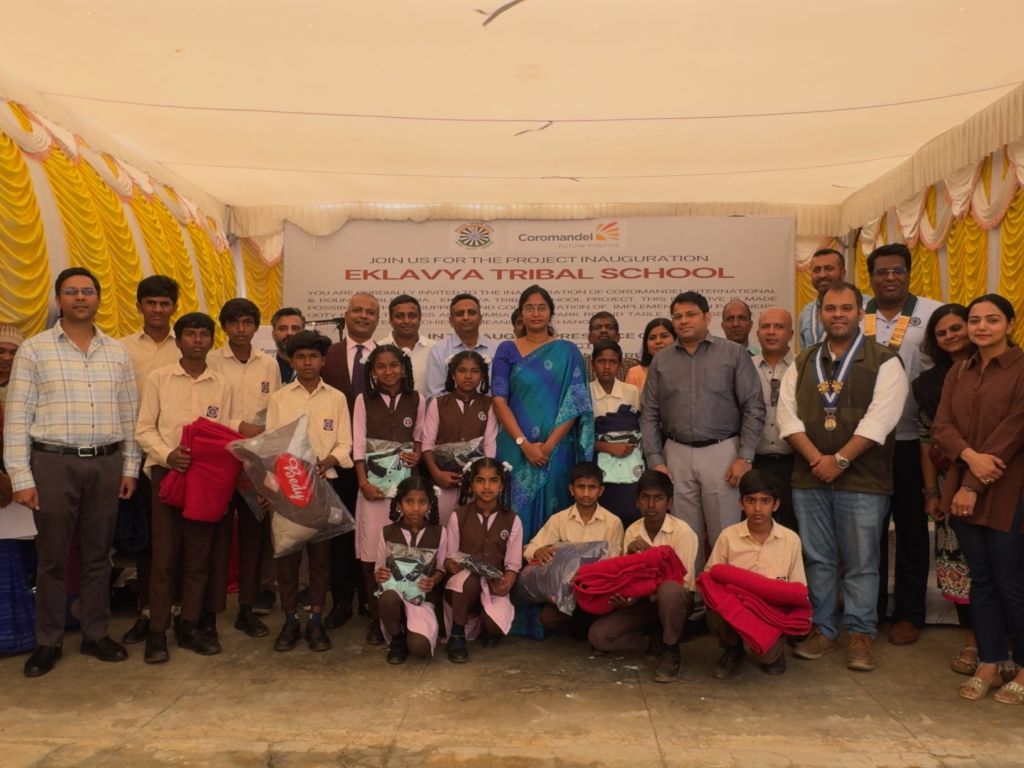Business Wire India
Vishwa Vishwani Institute of Systems and Management organized Amrit Kall Lecture Series in association with ICSSR, on New Education Policy and Bharatiya Model of Education for becoming a Developed Nation.
Shrinivas Acharya, Chairman Vishwa Vishwani Institutions, welcomed gathering and stated that VVISM was the first Institute to launch multi-Disciplinary courses is one of the premier business schools in Hyderabad which launched first offering UG, and PG programs.
“Reform, Perform, Transform is the formula we are implementing, in line with NEP 2020's vision,” said the Chairman. He emphasized that VVISM is proud to provide students the flexibility and resources to pursue their interests across disciplines.
VVISM aims to continue pioneering academic excellence through innovative programs based on emerging career landscapes. As one of the premier institutes in Hyderabad, it is committed to nurturing socially responsible professionals and entrepreneurs.
Prof. Mamidala Jagadesh Kumar, Chairman, University Grants Commission (UGC), Delivered the lecture, while Prof. D Ravinder, Vice-Chancellor Osmania University & Chairman, ICSSR – SRC, Prof. B Sudhakar Reddy, Honorary Director, ICSSR-SRC & Sri Shrinivas Acharya Chairman Vishwa Vishwani Institutions presided over.
In his address, Prof. Jagadesh Kumar emphasized that NEP 2020 aims to develop an inclusive, equitable and high-quality education system. He stated that students are the primary stakeholders who will drive this policy forward. Prof. Jagadesh Kumar highlighted key proposals like multidisciplinary education, Academic Bank of Credits, single regulator for higher education, and focus on research and innovation.
Prof. B Sudhakar Reddy highlighted critical role of research in informing evidence-based policy making and educational reforms. He provided perspectives on how social science research can aid the implementation and localization of NEP 2020.
Prof. Ravinder, Vice Chancellor, OU, focused his address on the academic and pedagogical changes envisioned under NEP 2020. He spoke about the policy's focus on enabling holistic development, critical thinking, creativity, and freedom to choose subjects across disciplines. Prof. Ravinder stressed that standardized testing stifles creativity and students must be encouraged to question status quo.
It was emphasized, that NEP 2020 marks a fundamental change in the approach to education. It aims to equip students with 21st-century skills while retaining India’s traditions and value systems.
In the lively Q&A session, students raised queries about curriculum reform, teaching methodologies, research opportunities and other key proposals under NEP 2020.
The insightful session highlighted the transformative potential of NEP 2020. Dr Y Lakshman Kumar, Director VVISM presented Vote of thanks and stated that such engaging discussions are integral for realizing the policy’s vision and empowering students to drive change.
Vishwa Vishwani Institute of Systems and Management organized Amrit Kall Lecture Series in association with ICSSR, on New Education Policy and Bharatiya Model of Education for becoming a Developed Nation.
Shrinivas Acharya, Chairman Vishwa Vishwani Institutions, welcomed gathering and stated that VVISM was the first Institute to launch multi-Disciplinary courses is one of the premier business schools in Hyderabad which launched first offering UG, and PG programs.
“Reform, Perform, Transform is the formula we are implementing, in line with NEP 2020's vision,” said the Chairman. He emphasized that VVISM is proud to provide students the flexibility and resources to pursue their interests across disciplines.
VVISM aims to continue pioneering academic excellence through innovative programs based on emerging career landscapes. As one of the premier institutes in Hyderabad, it is committed to nurturing socially responsible professionals and entrepreneurs.
Prof. Mamidala Jagadesh Kumar, Chairman, University Grants Commission (UGC), Delivered the lecture, while Prof. D Ravinder, Vice-Chancellor Osmania University & Chairman, ICSSR – SRC, Prof. B Sudhakar Reddy, Honorary Director, ICSSR-SRC & Sri Shrinivas Acharya Chairman Vishwa Vishwani Institutions presided over.
In his address, Prof. Jagadesh Kumar emphasized that NEP 2020 aims to develop an inclusive, equitable and high-quality education system. He stated that students are the primary stakeholders who will drive this policy forward. Prof. Jagadesh Kumar highlighted key proposals like multidisciplinary education, Academic Bank of Credits, single regulator for higher education, and focus on research and innovation.
Prof. B Sudhakar Reddy highlighted critical role of research in informing evidence-based policy making and educational reforms. He provided perspectives on how social science research can aid the implementation and localization of NEP 2020.
Prof. Ravinder, Vice Chancellor, OU, focused his address on the academic and pedagogical changes envisioned under NEP 2020. He spoke about the policy's focus on enabling holistic development, critical thinking, creativity, and freedom to choose subjects across disciplines. Prof. Ravinder stressed that standardized testing stifles creativity and students must be encouraged to question status quo.
It was emphasized, that NEP 2020 marks a fundamental change in the approach to education. It aims to equip students with 21st-century skills while retaining India’s traditions and value systems.
In the lively Q&A session, students raised queries about curriculum reform, teaching methodologies, research opportunities and other key proposals under NEP 2020.
The insightful session highlighted the transformative potential of NEP 2020. Dr Y Lakshman Kumar, Director VVISM presented Vote of thanks and stated that such engaging discussions are integral for realizing the policy’s vision and empowering students to drive change.





